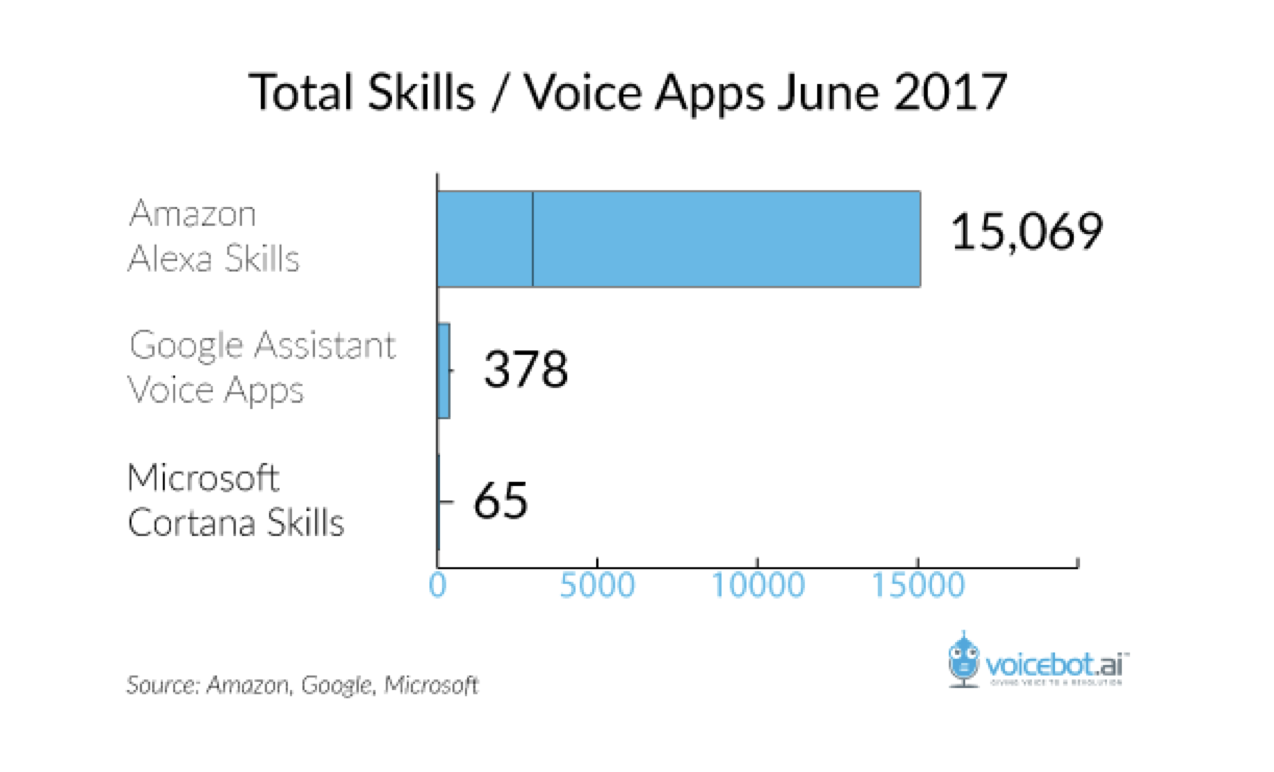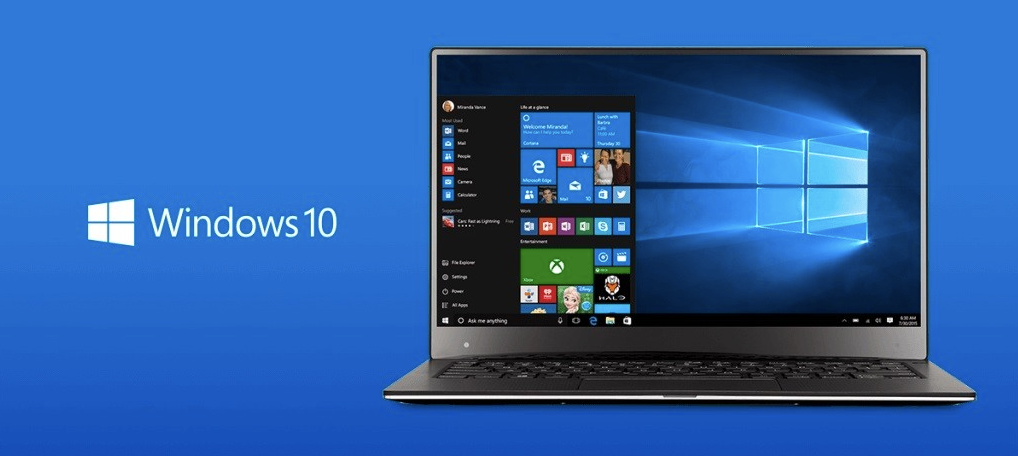It’s not often that two competing companies that are each pouring billions of dollars into similar platforms agree to work together, but that’s exactly what we saw with the just-announced partnership between Amazon Alexa and Microsoft Cortana.
Trying to predict the future is a crucial part of being a startup founder, especially when you’re working in a category as new as voice. We’re building design software for voice applications at Sayspring, so we’re constantly thinking about how the major voice platforms will unfold.
The recent news that Amazon Alexa and Microsoft Cortana will now “talk to each other” is a major development. Here are some of the reasons I think it makes sense, and what it means for the future of voice.
What Microsoft Gains
Amazon is a formidable competitor, but here’s why this agreement makes sense for Microsoft.
Voice-Powered Commerce — A product of Amazon, one of the core missions behind the Alexa platform is making it easier to purchase. Cortana doesn’t have much in the way of purchasing functionality, and by partnering with Alexa, they are bringing the ease and convenience of voice commerce to millions of Cortana users.
Improved Presence in the Home — Microsoft’s voice assistant Cortana currently has over 141M monthly active users, and roughly 25% of all Cortana queries are delivered through voice. That’s a massive user base, mostly a result of Cortana being shipped with every copy of Windows 10.
But while Microsoft has owned the desktop for decades, the company has tried hard to establish a major presence in the home with the Xbox. It seems to be a battle they are losing to Sony. It’s estimated that Microsoft has sold roughly 33M Xbox Ones since the 2013 launch, compared to Sony Playstation 4’s 66M sold. Cortana runs in almost every Xbox, but it lacks a microphone of its own and can only be spoken to through a headset or Kinect, limiting voice access to a sliver of overall Xbox owners.

With 10’s of millions devices sold, Amazon Alexa promises to become the “Operating System for the Home.” Partnering with Alexa makes not only Xbox, but the entire Microsoft ecosystem, including Outlook and Office 365, accessible through what is now the primary interface of the home: voice.
Access to More Third-Party Apps— Three of the major voice platforms (Alexa, Assistant, and Cortana) all offer support for third-party applications. Cortana just launched their offering, Skills, this past May. Alexa launched Skills over two years and already has over 17,000 third-party apps. Now Cortana can offer all of that functionality through this partnership.

Even before this partnership was announced, it’s telling that Microsoft decided to call their voice apps “Skills” the same way Alexa does, borrowing the same metaphor of these apps teaching the voice assistant something new. Google Assistant calls them Actions, and the entire third-party experience is delivered in a different voice, making the voice assistant more of an operator connecting users to different services. With a common approach between both platforms, it’s likely we’ll see the experience of using third-party apps become more and more seamless.
Insight into Alexa Usage — Whenever someone talks to Alexa through Cortana, Microsoft will know what is being discussed, giving the company a look at how users are interacting with the market-leading voice platform. That’s valuable insight into user behavior through voice interfaces. Of course, the flip-side of this is that Alexa will also see how users are talking to Cortana, but considering how far ahead Amazon here, this seems like a smart trade for Microsoft.
“You need a culture that is fundamentally not opposed to new concepts and new capabilities” -Satya Nadella
When Satya Nadella took over as CEO, he outlined his vision for a new Microsoft. The former CEO, Steve Ballmer, had viewed Microsoft as a devices and services company. Nadella’s vision is to make Microsoft a “company capable of working across any platform — even those controlled by competitors — to help people be more productive.” This partnership shows how the company is determined to leverage Alexa’s headstart in voice for their own benefit.
What Amazon Gains
Though they have 70% of the smart speaker market, here is what Amazon stands to gain from partnering with Microsoft on voice.
More Customers — As Microsoft brings purchasing to Cortana users through this partnership, Amazon gains access to those users as customers. Though it’s likely that many Cortana users already have an Amazon account, now it’s much easier for them to make purchases through Alexa when they’re in a Cortana-powered environment, like the desktop.
Windows Users, many in the Enterprise — Beyond the 141M active monthly Cortana users, Windows still powers much of the desktop world, with 400M+ Windows 10 machines out in the wild. A much more efficient method of input, voice is becoming increasingly popular on the desktop.
As just one example, Google announced that Google Analytics will soon support voice commands, letting anyone ask things like “how many visitors did we have last week” without needing to manually set date ranges and click through dashboards. That’s the kind of voice integration we’ll continue to see more software support, and Amazon wants to be a part of that shift.

Most of us sit in front of a computer all day. From controlling your smart home to starting your car, we will now have access to all of our Alexa-powered devices through Cortana without leaving our desk.
Xbox — Xbox wasn’t mentioned in this announcement, and Cortana Skills aren’t yet available on Xbox, but I can’t help but think this will become important. Gaming is a huge opportunity and Amazon knows this. They bought Twitch for $1 Billion in 2014, and recently released Pulse, a social network specifically for gamers. Every Xbox One owner has Cortana, but without a microphone, few can talk to her. Amazon Alexa-powered devices like the Echo and Dot, usually placed within speaking distance of a gaming console, can now be that microphone.
This would help Amazon connect with an important set of users, but also give them a look at how gamers are using Xbox, what apps they’re interacting with, and what type of content they are viewing. For a company that is targeting gamers, has their own gaming platform, and is in the streaming media business, this would all be good information to have.
A Rising Tide Lifts All Boats
Amazon has thousands of people working on Alexa, and they see it as being the fourth-pillar of their business (the other 3 being e-commerce, marketplace, and cloud services). Today’s voice interfaces are powered by the cloud, and the kinds of services that Amazon offers. The more people using voice, and find utility through voice assistants, the more potential customers for AWS.
The other two major players in the voice assistant market, Google and Apple, both have mobile hardware to embed their voice platforms into. Microsoft and Amazon both haven’t had successful smartphones adopted by the market. They both had issues with their mobile strategy, and with the prospect of seeing another major platform shift, they have a shared interest in making sure Google’s Assistant and Apple’s Siri don’t become the dominant voice platforms.
“It is a renaissance, it is a golden age.” -Jeff Bezos on AI
Early Days, Big Promise
There will undoubtedly be some awkward user experience issues early on that will need to be worked out (“Alexa, open Cortana” is just a starting point), but this type of partnership is a smart move to drive voice adoption forward while potentially blocking out two major competitors.
Mark Webster is the Founder/CEO of Sayspring, a design and prototyping platform for voice applications.
